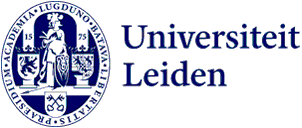
Anne Urai on her Veni subsidy and open science
Neuroscientist Anne Urai has been awarded a Veni subsidy to further develop her ideas over the coming four years on how the brain makes choices. Why did she receive the award? Urai answers five questions about her Veni grant for young researchers.
What will the Veni subsidy make it possible for you to do?
‘I’m going to start by analysing previously compiled data, where I made very precise brain measurements in mice that were engaged in a difficult decision-making game. I will use mathematical models to analyse the data. My aim is to gain a better understanding of how the combined effect of neurons in the brain contributes to making good or less good choices. A specific question that I want to answer is how the brain changes with ageing. Later in the Veni project I will ask human test subjects to play the same game so that I can measure their brain activity using EEG. My goal in doing this is to build a bridge between neurophysiology in animals and humans.’

Why were you among the Veni prize winners?
‘These days, a lot more attention is being paid to open data and the re-use of existing data, certainly in the Netherlands. I feel proud that I can contribute to collecting and sharing large-scale, well-organised and documented data within the International Brain Laboratory.
Open science is always important, especially when working with laboratory animals. This kind of open science also helps researchers who don’t have access to a lab themselves where they can make these measurements: they can simply download the data. This is where my research comes in. Without this approach, I would never have had enough time to first collect data in mice and humans and then to analyse the data properly and create models based on the data.’
How will your research benefit society?
‘A lot of our knowledge about ageing is at cell level. But there is also the question of what changes take place in the DNA, for example. I want to understand how the activity of cells ultimately leads to cognitive changes, such as memory loss or reduced flexibility in making choices. I will try to make this link by combining the brain measurements in mice and large-scale brain measurements in humans. Then I’ll combine this with mathematical modelling of cognitive skills, such as integrating sensory information and expectations in making choices.’
Who would you like to collaborate with?
‘I intend continue to collaborate with the International Brain Laboratory consortium where I conducted research as a postdoctoral fellow. I’m also looking forward to learning a lot about ageing processes from researchers in Leiden, such as those involved in the https://www.agestudy.nl/login?language=englishLeiden Age Study and the Leyden Academy on Vitality and Ageing.’
What does your Veni research look like in corona times?
‘Actually, just about the same as normal! A lot of my Veni plans make use of existing data that I collected on mice as a postdoctoral researcher. Luckily, I can also process the data at home. And it’s easy today to collect behavioural data online. I hope the corona restrictions will be less of an issue by the time I need to make EEG measurements in human test subjects.’
Banner photo: Anne Urai working on an experiment to train mice to engage in a game.
